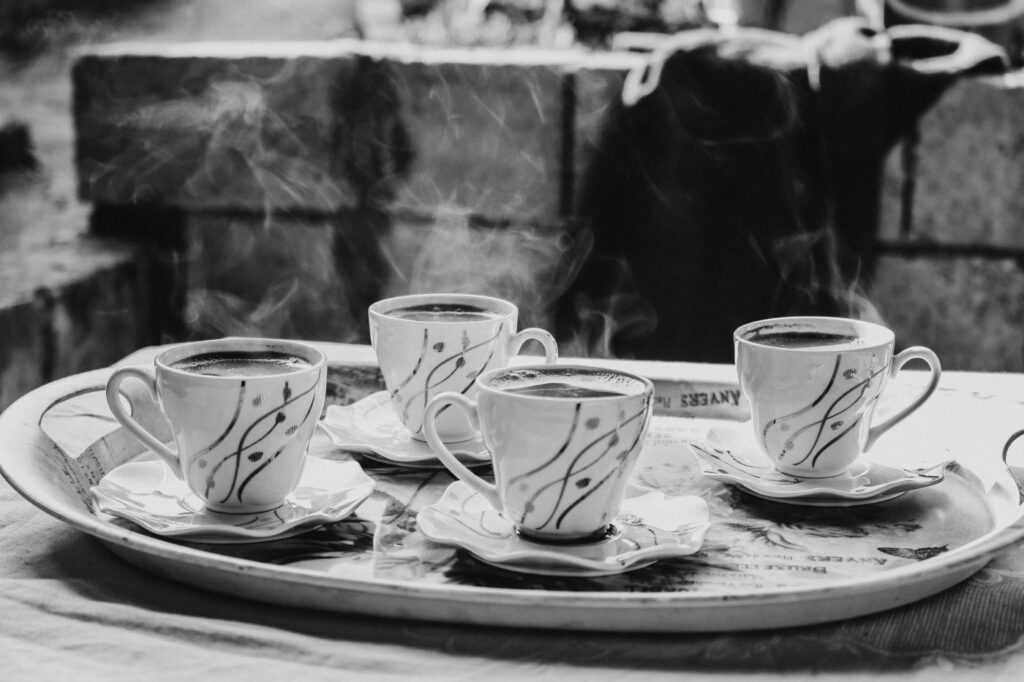In a fascinating cultural phenomenon, people in Hungary are flocking to a café named after the philosopher Roger Scruton. But this is no ordinary café. It’s a hub of conservative intellectual ferment, equipped with a library and regularly hosting lectures. More than just a place to enjoy a cup of coffee, it serves as a vibrant center for conservative thought and discussion, exemplifying the profound resonance of Scruton’s influence in today’s world. This initiative underscores the importance of representation in political thought, highlighting the need for luminaries who both embody and emotionalize the ideology for the masses.
Among the voices echoing this sentiment is Ferenc Hörcher, a distinguished political philosopher with academic ties to Budapest, Oxford, and Brussels-Leuven. While serving as a professor at Pázmány Péter Catholic University and as the director of the Institute of Philosophy of the Hungarian Academy of Science, Hörcher has authored seminal works such as A Political Philosophy of Conservatism and The Political Philosophy of the European City. Yet it’s his latest investigation into Scruton’s philosophy that commands our attention.
Hörcher’s Art and Politics in Roger Scruton’s Conservative Philosophy presents an in-depth examination of Scruton’s philosophical contributions. The tome caters to both neophytes and aficionados of Scruton’s work, offering a panoramic view of the philosopher’s indelible imprint on conservative thought. Amid the rapidly evolving landscape of contemporary thought, where progressive ideas often dominate the intellectual arena, Scruton’s conservative insights resonate with an enduring relevance. Hörcher adeptly elucidates how Scruton’s belief in the intertwining of aesthetics, morality, and politics stands as a bulwark against the often fragmented worldview of today’s modern thinkers.
Moreover, in a time where societal values and traditional institutions are under constant scrutiny, the exploration of Scruton’s advocacy for conserving cultural heritage and acknowledging the wisdom of the past becomes increasingly salient. Hörcher’s analysis not only highlights Scruton’s dedication to preserving the aesthetic and moral fabric of society but also underscores the philosopher’s assertion that understanding and respecting our roots is paramount for social progress.
Start your day with Public Discourse
Sign up and get our daily essays sent straight to your inbox.Hörcher’s analysis not only highlights Scruton’s dedication to preserving the aesthetic and moral fabric of society but also underscores the philosopher’s assertion that understanding and respecting our roots is paramount for social progress.
For the younger generation, particularly emerging academics and intellectuals seeking a comprehensive understanding of conservative thought’s depth and nuances, this book serves as an invaluable guide. Hörcher’s narrative is not just a homage to Scruton’s ideas; it is a clarion call for the contemporary world to recognize and engage with the richness and pertinence of conservative philosophy. In doing so, readers are encouraged to critically evaluate the role of tradition in shaping the future and to consider the timeless wisdom embedded in conservative thought as a valuable resource in navigating the challenges of the present.
As one of the most prominent and productive conservative thinkers of the late twentieth and early twenty-first centuries, Scruton lived a long and prolific life as he dedicated himself to exploring philosophy. His life was characterized by a deep appreciation for tradition, community, and the aesthetic aspects of the human experience. He was renowned for his ability to combine theoretical understanding with practical applications. Scruton’s influence on the conservative movement was wide-reaching and multi-faceted. His writings and ideas were essential to the growth and development of the movement, and his dedication to the values of tradition, culture, and community helped to shape the core values of modern conservatism.
Hörcher’s exploration of Scruton’s philosophy provides an intriguing exploration of the intersection of art and politics, two areas Scruton believed to be intimately connected and mutually reinforcing.
A notable British philosopher, Scruton left a profound mark on the fields of philosophy, aesthetics, and politics. Beyond his rich academic endeavors, Scruton’s emphasis on the core values of tradition, community, and the intrinsic worth of art and beauty resonate deeply in today’s shifting cultural landscape. Hörcher’s book delves into Scruton’s nuanced thinking, dispelling the simplified notion of him merely as a neo-Kantian and underscoring the analytic tradition’s influence on his ideas. In our contemporary era, where the role of tradition and aesthetics is often under debate, Scruton’s perspectives emerge as both timely and timeless.
Hörcher’s book on Scruton is divided into several chapters, each exploring a different facet of Scruton’s philosophy. The initial chapter lays the groundwork for the discussion, outlining the central tenets of Scruton’s thought. It elucidates Scruton’s conservative principles, his views on the role of tradition and community, and his belief in the inherent value of beauty and art.
In the subsequent chapters, Hörcher delves deeper into the intricacies of the connections between art and politics in Scruton’s philosophy. He discusses how Scruton perceives art as a vehicle for expressing and preserving cultural heritage and social values. Furthermore, he examines Scruton’s belief in the political importance of art, arguing that artistic expression contributes to the social order and fosters a sense of community.
In our contemporary era, where the role of tradition and aesthetics is often under debate, Scruton’s perspectives emerge as both timely and timeless.
Aesthetic Conservatism
One of the central themes Hörcher developed in his book is “aesthetic conservatism,” a term that captures Scruton’s belief in the importance of beauty and art in a healthy society. Scruton argued that art, culture, and tradition are not only intrinsically valuable but also essential to a community’s social and moral fabric. He saw the degradation of art and culture as symptomatic of social decline. One of the reasons for this may be that, according to Hörcher, “Scruton increasingly realized that through art we can indeed learn something about human nature which is of a metaphysical relevance. It concerns the human being as a zoon politikon, [a] being born into a community, and to a large extent, determined by that same community.”
Hörcher thoroughly analyzes Scruton’s aesthetic conservatism, exploring its philosophical underpinnings and implications for politics and society. He discusses how Scruton sees beauty as a universal value transcending cultural differences and individual subjectivity. This belief in the objective value of beauty informs Scruton’s conservative stance on cultural preservation and his critique of modernist and postmodernist art.
Relativistic positions, especially in ethics, are often recognized as problematic. Yet this perspective offers a roadmap for understanding the necessity of clear standards in aesthetics. The conservative viewpoint presented here posits an intrinsic link among various philosophical branches: ethics, aesthetics, and logic, as well as foundational beliefs in ontology and epistemology. These elements are intrinsically interwoven, each influencing the other. A central tension in conservative thought is discerning how to differentiate between constant elements of natural law and the evolving elements across cultures without succumbing to narcissistic relativism.
In today’s fast-changing cultural landscape, where relativism often blurs foundational beliefs, young conservatives can find grounding in this perspective. It provides them with a framework that respects both tradition and evolution, guiding them in navigating the complexities of modern society without losing their philosophical anchors.
Art As a Political Tool
Just as the café named after Roger Scruton serves as a communal hub for conservative discourse in Hungary, Scruton’s philosophy highlights the communal power of art. Hörcher delves into Scruton’s view of art as not just an aesthetic experience, but a political tool. For Scruton, art is pivotal to expressing and upholding a community’s values. He perceives aesthetic experiences as communal participations that engender social cohesion and moral consensus. In a sense, places like the café mirror this philosophy, fostering community and discussion around shared values, much like art does.
The degradation of art and cultural heritage, Scruton warns, can precipitate social disintegration and moral decay. He was cautious, however, to not subordinate art to politics. For him, the political value of art doesn’t stem from leveraging it for raw political agendas, but from the genuineness of its representation.
In examining this facet of Scruton’s philosophy, Hörcher offers a nuanced appraisal, laying out its implications for cultural policy and the politics of art. He juxtaposes Scruton’s views with a balanced critique, acknowledging their merit while also illuminating potential drawbacks and challenges. Much as the patrons of the café critically engage with conservative thought, so too does Hörcher with Scruton’s beliefs on art and politics.
Much like the patrons of the café critically engage with conservative thought, so too does Hörcher with Scruton’s beliefs on art and politics.
Art, Beauty, and Morality
There is an inherent contradiction between aristocratic cultural aspects of conservative thought and the technical reproduction of ideas commonly found in populist discourses. Conservative ideas are too intricate to be reduced to simplistic oppressor–oppressed dichotomies that often dominate today’s narratives. The relative popularity of Scruton’s legacy isn’t just happenstance. While many might view the modern embrace of his work as mere nostalgia or cultural populism, it’s actually a profound effort to generate cultural icons. It is here that Scruton’s uniqueness comes to the fore. Despite his thoughts’ being deeply rooted in complex conservative traditions, he was astute enough to render them accessible, employing a language that’s both clear and comprehensive. This not only makes Scruton a significant philosopher but also elevates him to the stature of a cultural hero of our times.
The significance of thinkers like Hörcher in this scenario is paramount. They play a pivotal role in ensuring that these profound ideas don’t get diluted but remain a subject of contemporary study and reflection. Their rigorous engagements reveal that the task of making Scruton’s intricate philosophy mainstream isn’t complete, highlighting the continual efforts needed to counter oversimplified narratives.
Beyond the theoretical, Scruton’s philosophy found practical expressions in his life choices. His active role in public and political life, especially his undeterred commitment to fostering values of liberty in Eastern Europe during the tense Cold War era, showcases his dedication. His refusal to concede to the popular rhetoric of the times, often summarized as “better red than dead,” stands as a testament to his unwavering principles.
In this landscape, Hörcher’s exploration transcends mere academic discussion. It accentuates the enduring relevance of Scruton’s work in today’s rapidly evolving world. Figures like Scruton, bolstered by scholars like Hörcher, provide invaluable insights to address contemporary challenges through time-tested philosophies.
For example, Hörcher’s approach involves exploring and comprehending Scruton’s ideas through the concept of via activa, complemented by via contemplativa. This approach is rooted in the tradition of Aristotle’s Nicomachean Ethics. However, Hörcher’s Scruton did not prioritize one over the other: “Our claim made about action and reflection was that Scruton was unable or perhaps not prepared to make a definitive decision on the issue; . . . he lived two lives in parallel.”
In this landscape, Hörcher’s exploration transcends mere academic discussion. It accentuates the enduring relevance of Scruton’s work in today’s rapidly evolving world. Figures like Scruton, bolstered by scholars like Hörcher, provide invaluable insights to address contemporary challenges through time-tested philosophies.
Throughout the book, Hörcher seeks to combine a diachronic and a synchronic point of view and does so gracefully. But the question that remains unanswered is how much the mature version of Scruton differs from his earlier self and what conclusions can be drawn about his intellectual growth. Additionally, an objective assessment of Scruton’s significance and a comprehensive analysis of his influence would benefit the book. Analyzing the reasons why conservatism lost its better counter-totalitarianism at the beginning of the twentieth century and failed to provide a compelling, deep, and comprehensive philosophical alternative to postmodernism and the dominant Frankfurt School after World War II would also be highly valuable.
Furthermore, the book would have benefited from a deeper exploration of the aesthetic connections between Scruton and Burke, especially Burke’s renowned work A Philosophical Inquiry into the Origin of our Ideas of the Sublime and the Beautiful. Hörcher could have examined significant questions, like the differing perceptions of the relationship between politics and aesthetics held by both individuals, and the insights we can glean from this regarding the interplay between their epistemological convictions and conservative assumptions.
Hörcher’s text provides a nuanced exploration of Scruton’s intricate ideas about the symbiotic relationship between art, culture, and politics. Through Hörcher’s lens, readers witness the depth and breadth of Scruton’s philosophical contributions, creating an alternative to today’s philosophical zeitgeist. As Hörcher adeptly navigates Scruton’s theories, he beckons readers to critically engage with and reevaluate the tenets that shape our perspectives on art and politics, emphasizing the timeless relevance of conservative thought.
Featured image is licensed via Pexels.com.














